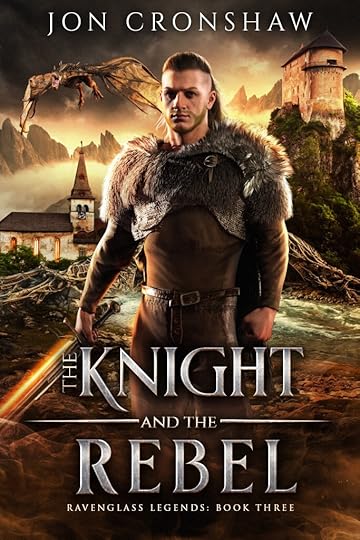How to Handle Colonial Themes in Fantasy Fiction
As fantasy writers tackle themes of colonialism and empire, we face a significant challenge.
How do we explore these themes authentically without falling into damaging stereotypes or accidentally glamorising colonialism?
While writing The Knight and the Rebel, I grappled with these questions constantly.
Here, I’d like to share some insights from that process.
Tropes to AvoidFirst, let’s acknowledge the tropes we need to steer clear of:
The “noble savage” who supposedly needs civilisation.The “white saviour” liberating the oppressed.Colonised peoples portrayed as one-dimensional victims.The assumption that technological or magical advancement equals moral superiority.The notion that colonisation brings necessary “progress.”Showing Complex SocietiesInstead of depicting Wiete as “primitive,” I portrayed it as a sophisticated society.
It has its own political structures, traditions, and values.
The Empire doesn’t bring civilisation—it imposes a different civilisation designed to serve its own interests.
When Ragnar observes Imperial “improvements” like the Kusten Road, he recognises how these developments primarily benefit Imperial control rather than local people.
Neither the Empire nor the resistance is a monolithic entity.
The Empire includes true believers, pragmatists, and secret doubters.
The resistance features various factions with differing methods and goals.
This complexity avoids simplistic “good vs evil” narratives that can reinforce colonial thinking.
Examining Power StructuresThrough Ragnar’s position as Knight Protector, we see how colonial powers co-opt local elites to maintain control.
Through Maja’s chapters, we witness how resistance movements can become corrupted by violence.
These perspectives show how colonialism distorts and damages both coloniser and colonised.
Ragnar’s chapters reveal the Empire’s machinery of control.
Maja’s perspective ensures the human cost of colonisation remains central.
Her story isn’t just about resistance—it’s about preserving culture and identity in the face of systematic erasure.
Conscious Language ChoicesI paid close attention to the language used to describe different cultures.
The Empire doesn’t bring “civilisation”—it enforces its own cultural practices through violence.
Words like “savage,” “primitive,” or “barbaric” appear only in the dialogue of Imperial characters.
This highlights their prejudices rather than reinforcing harmful stereotypes.
Magic as a MetaphorThe magic system in The Knight and the Rebel centres around mental influence and control.
This serves as a metaphor for how colonial powers shape the thoughts and beliefs of both the conquered and their own people.
The magic isn’t about superiority—it’s about power and its abuse.
Avoiding Easy AnswersI tried to avoid offering simplistic solutions to colonial oppression.
Neither total assimilation nor violent resistance is presented as the “right” choice.
Characters navigate complex moral territories where every option carries a cost.
Authors Who Tackle Colonial Themes WellSome authors handle these themes with remarkable depth and sensitivity:
N.K. Jemisin’s Broken Earth trilogy examines systemic oppression through a fantasy lens.Samantha Shannon’s The Priory of the Orange Tree explores religious and cultural imperialism.R.F. Kuang’s The Poppy War series confronts the trauma of colonialism.S.A. Chakraborty’s Daevabad Trilogy depicts intricate power dynamics between diverse groups.Questions to Consider While WritingWhen writing, I asked myself these key questions:
Does this scene perpetuate harmful stereotypes?Whose perspective am I centring, and why?Am I showing the full humanity of all characters?Am I being honest about the violence of colonialism?Am I inadvertently justifying colonial actions?Writing With ResponsibilityIt’s crucial to remember that writing about colonialism in fantasy isn’t just about creating engaging conflict.
It’s an opportunity to examine power structures that continue to shape our world.
As writers, I feel we have a responsibility to handle these themes with care and awareness.
None of us will get it perfectly right.
But by staying conscious of these issues and constantly questioning our assumptions, we can create stories that challenge rather than reinforce colonial narratives.
Join the ConversationWhat are your thoughts on handling colonial themes in fantasy?
Which works do you think explore these themes particularly well?
Share your perspectives in the comments.

The post How to Handle Colonial Themes in Fantasy Fiction appeared first on Jon Cronshaw.



